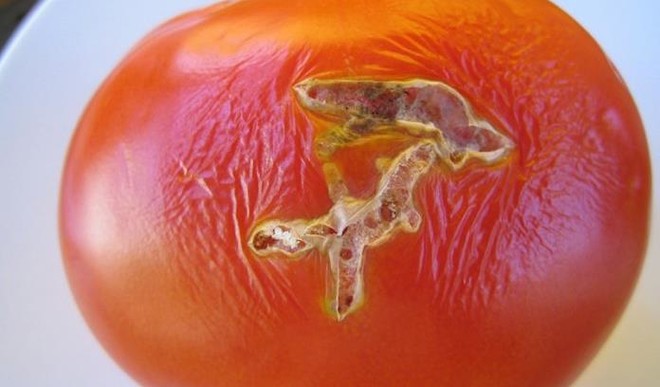New tray-and-lamp tech to end “tomato ebola”
Scientists at the National Horticultural Research Institute (NIHORT), Ibadan have invented a technology to reduce the impact of tuta absolute, known as tomato ebola. The pest caused huge losses in tomato crop and scarcity in 2015, but technology using tray and rechargeable lamps may help farmers overcome challenges with tomato ebola. Researchers found the pest […]


Scientists at the National Horticultural Research Institute (NIHORT), Ibadan have invented a technology to reduce the impact of tuta absolute, known as tomato ebola.
The pest caused huge losses in tomato crop and scarcity in 2015, but technology using tray and rechargeable lamps may help farmers overcome challenges with tomato ebola.
Researchers found the pest is active at night and attracted to light.
Leader of the research team and entomologist Dr. Abiola Oke said, “The tray is filled with water, sprinkled with a little detergent and a stone in placed inside, after which the battery powered or rechargeable lamp is placed on the stone and once the tuta which lays the eggs that damage the tomatoes come to the light, they fall into the tray and are trapped, hence drown and die in the water."
When asked how affordable the technology is to farmers who are mostly in the rural areas, she said that each set costs less than N1,000, which is used for purchasing the major tools; a plastic tray and a lamp, adding that the research and the tools for the set up of the technology and the funding is being sponsored by the Federal Ministry of Agriculture.
On how the scientists aim to reach out to all the farmers in the tomato area, she said their team on a first phase would be touring tomato producing states in some states, where they would donate trays, lamps and detergents to the farmers.
"As a sustainable scheme, we would organize meetings and workshops for leaders of farmers groups within the catchment areas from where there would be a multiplying effect as they go back and train others," she assured.
A farmer in one of the locations visited in Samaru-Zaria, Kaduna State, Malam Isa Ibrahim expressed optimism over the technology and promised to reach out to other colleague in order to end the scourge.
